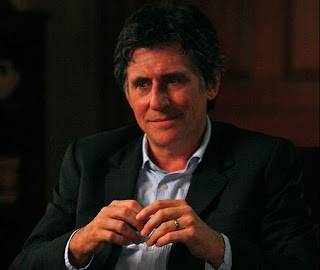
It’s not TV.
It’s not.
Well, technically it is, but it’s so far and away better than most of the drivel that’s broadcast other places, it’s like it’s not even the same thing. In that way, it’s like religion. You don’t have to look very far to find two people who practice the same religion, yet one is consumed with hate, judgement, self-righteousness, fear, phobia, and is absolutely closed and defensive, while the other is consumed with compassion, filled with peace, fighting for an end to injustice and oppression, and is open and humble. They both may call themselves Christian or Jew or Muslim of Sikh, but they are not the same.
I said all that to say this: When they say, It’s not TV. It’s HBO. Though technically wrong, they are nonetheless accurate.
I’ve been a fan and faithful viewer of HBO’s original series for quite a while now, going all the way back to my favorite New York girls, Carrie, Miranda, Charlotte, and Samantha. I also enjoyed spending time with the Fisher family, visiting Seth Bullock and his foulmouthed frenemies, and even to a lesser extent enjoy Sookie Stackhouse in spite of the actress’ truly atrocious accent.
Now that “Sex and the City,” “Six Feet Under,” and “Deadwood” have gone the way of all flesh and other great shows like “Buffy” and “Gilmore Girls,” I find that my favorite show next to “House” these days is “In Treatment.”
Flawed and fragile, Paul Weston is a wise, insightful, patient counselor, and a session with him is as therapeutic as any on TV. In the best tradition of wounded healers, he’s a broken man in crisis, ministering out of his need—“Look at my hands and feet. It is I. Touch me and see.”
That Paul is also in treatment, that the counselor becomes the counseled, gives the show a whole other dimension, showing us, therapy voyeurs, another side of him—a vulnerable and neurotic side his patients never see. After all, the man behind the curtain, the one we’re supposed to pay no attention to, is always more interesting than anything else.
Shakespeare did it first, then much later, Hemingway reminded us. In the right hands, unalloyed dialog can be downright devastating—dramatic, suspenseful, intense, and interesting.
Conversation. Two people in a room talking. And it’s as riveting as anything on TV.
In its second season right now, “In Treatment” is worth paying the extra ten bucks to get HBO (maybe it’s more than that. Seems like that’s what I pay, but whatever it is, it’s the best value on my outrageous cable bill). The first season is available on DVD.
Paul’s patients—both from season one and two—are so sad and beautiful in their fractured humanity, in their longing (ultimately for love, though they may not know it), in their need for help to pick up the pieces and put them somehow back together again. Do you recognize them? They are lonely singles. They are miserable marrieds. They are sick and hurting. They are in crises. They are reevaluating. They are me. They are you.
I believe in counseling, have done a good bit of it over the years—both inside prison and out—and have so many intimates who are counselors, that I feel like I’ve been in treatment my entire adult life. Few things are better for us, more therapeutic, than a safe, nonjudgmental place where we can say absolutely anything we need to, where we can bring forth the monsters in our minds and, in the light of love and understanding, see how very small they really are. Is there anything we humans need more than to be heard and understood? That’s why the art of counseling, like the art of friendship, is mostly about listening. Sure, an occasional question or insight is helpful, but nothing compares to being heard and accepted, and knowing what we say will be taken to the grave.
Some of the best counseling I’ve received over the years has come from books by or about counselors—particularly the gentle, tender, Thomas Moore, who truly does the work of caring for the soul. It was he who taught me that our word “therapy” has “chair” in its etymology, and how very appropriate that is, how very Zen (When sitting, just sit). In this, to sit with someone, to share their burden is to care for their soul, is to give them counsel and treatment. It’s something we can all do for each other—and something Paul Weston is doing for me each week in our sessions on Sunday and Monday nights. Feel free to join us.












No comments:
Post a Comment